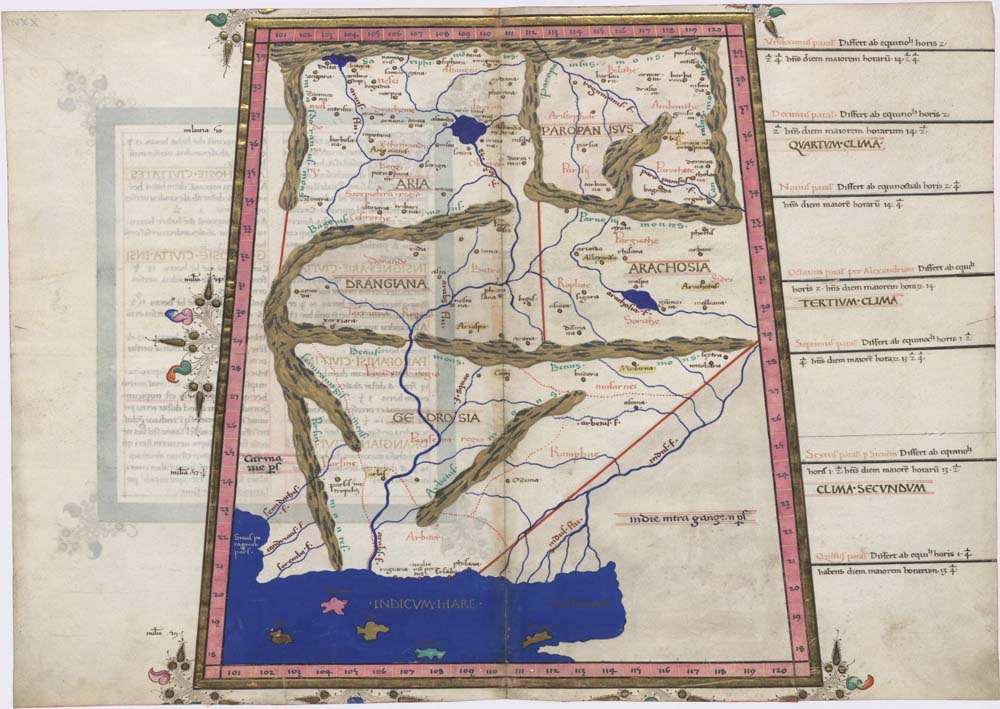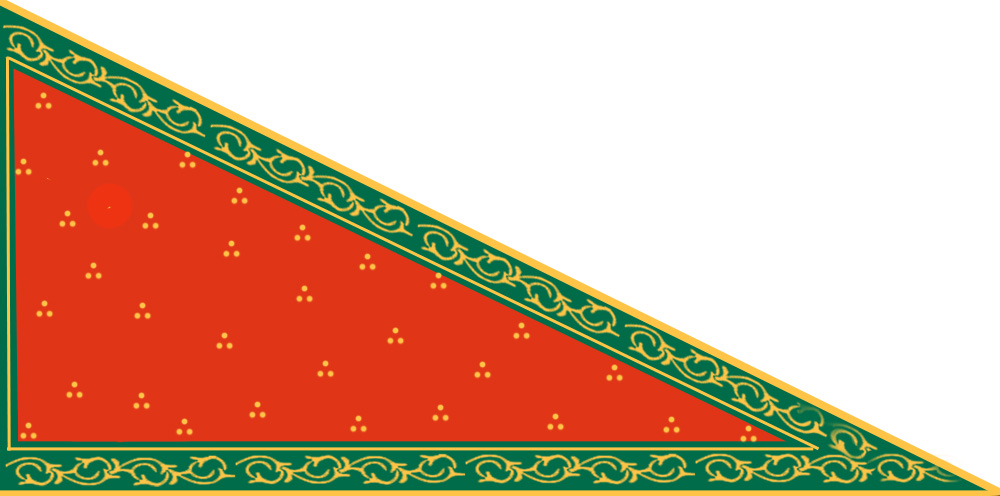|
General Service Enlistment Act
The General Service Enlistment Act of 1856 was passed by the British Parliament in 1856. It required every Indian soldier to go overseas for deployment if required. The Act was brought just before the Anglo-Persian War. The British were reluctant to send a force overland to Herat, reminiscent of the disasters of the first Anglo Afghan War. So instead, the Government in India decided to launch a maritime expeditionary force to attack the general area of Bushehr Bushehr, Booshehr or Bushire ( fa, بوشهر ; also romanised as ''Būshehr'', ''Bouchehr'', ''Buschir'' and ''Busehr''), also known as Bandar Bushehr ( fa, ; also romanised as ''Bandar Būshehr'' and ''Bandar-e Būshehr''), previously Antio ..., the primary port of entry into Persia at the time.Sandes, E. W. C. (1948) ''The Indian Sappers & Miners'', p. 128. For this reason Lord Canning, the Governor-General of India, decided to pass the Act that forced deployment literally overseas, as he was aware of the resistance ... [...More Info...] [...Related Items...] OR: [Wikipedia] [Google] [Baidu] |
Anglo-Persian War
The Anglo-Persian War or the Anglo-Iranian War () lasted between 1 November 1856 and 4 April 1857, and was fought between the United Kingdom and Iran, which was ruled by the Qajar dynasty. The war had the British oppose an attempt by Iran to press its claim on the city of Herat. Though Herat had been part of Iran under the Qajar dynasty when the war broke out, it had declared itself independent under its own rebellious emir and placed itself under the protection of the British in India and in alliance with the Emirate of Kabul, the predecessor of the modern state of Afghanistan. The British campaign was successfully conducted under the leadership of Major General Sir James Outram in two theatres: on the southern coast of Persia near Bushehr and in southern Mesopotamia. The war resulted in the Persians withdrawing from Herat and signing a new treaty to surrender its claims on the city and the British withdrawing from southern Iran. Origins In the context of The Great ... [...More Info...] [...Related Items...] OR: [Wikipedia] [Google] [Baidu] |
Herat
Herāt (; Persian: ) is an oasis city and the third-largest city of Afghanistan. In 2020, it had an estimated population of 574,276, and serves as the capital of Herat Province, situated south of the Paropamisus Mountains (''Selseleh-ye Safēd Kōh'') in the fertile valley of the Hari River in the western part of the country. An ancient civilization on the Silk Road between the Middle East, Central and South Asia, it serves as a regional hub in the country's west. Herat dates back to Avestan times and was traditionally known for its wine. The city has a number of historic sites, including the Herat Citadel and the Musalla Complex. During the Middle Ages Herat became one of the important cities of Khorasan, as it was known as the ''Pearl of Khorasan''. After the conquest of Tamerlane, the city became an important center of intellectual and artistic life in the Islamic world. Under the rule of Shah Rukh the city served as the focal point of the Timurid Renaissance, whose ... [...More Info...] [...Related Items...] OR: [Wikipedia] [Google] [Baidu] |
First Anglo-Afghan War
The First Anglo-Afghan War ( fa, جنگ اول افغان و انگلیس) was fought between the British Empire and the Emirate of Kabul from 1838 to 1842. The British initially successfully invaded the country taking sides in a succession dispute between emir Dost Mohammad ( Barakzai) and former emir Shah Shujah ( Durrani), whom they reinstalled upon occupying Kabul in August 1839. The main British Indian force occupied Kabul and endured harsh winters. The force and its camp followers were almost completely massacred during the 1842 retreat from Kabul. The British then sent an ''Army of Retribution'' to Kabul to avenge the destruction of the previous forces. After recovering prisoners, they left Afghanistan by the end of the year. Dost Mohammed returned from exile in India to resume his rule. It was one of the first major conflicts during the Great Game, the 19th century competition for power and influence in Central Asia between Britain and Russia. Background Cause ... [...More Info...] [...Related Items...] OR: [Wikipedia] [Google] [Baidu] |
Bushehr
Bushehr, Booshehr or Bushire ( fa, بوشهر ; also romanised as ''Būshehr'', ''Bouchehr'', ''Buschir'' and ''Busehr''), also known as Bandar Bushehr ( fa, ; also romanised as ''Bandar Būshehr'' and ''Bandar-e Būshehr''), previously Antiochia in Persis ( grc, Ἀντιόχεια τῆς Περσίδος, Antiócheia tês Persídos) and Bukht Ardashir, is the capital city of Bushehr Province, Iran and a port city in south of Iran. At the 2006 census, its population was 161,674, in 40,771 families. Bushehr lies in a vast plain running along the coastal region on the Persian Gulf coast of south-western Iran. It is built near the ancient port city of Rishahr (Sassanian, Riv Ardasher). It was the chief seaport of the country and is the administrative center of its province. Its location is about south of Tehran. Bushehr has a desert climate. Bushehr was the main trade center of Iran in the past centuries. The city structures are traditional in style, modest in proportion an ... [...More Info...] [...Related Items...] OR: [Wikipedia] [Google] [Baidu] |
Charles Canning, 1st Earl Canning
Charles Canning, 1st Earl Canning, (14 December 1812 – 17 June 1862), also known as The Viscount Canning and Clemency Canning, was a British statesman and Governor-General of India during the Indian Rebellion of 1857 and the first Viceroy of India after the transfer of power from the East India Company to the Crown of Queen Victoria in 1858 after the rebellion was crushed. Canning is credited for ensuring that the administration and most departments of the government functioned normally during the rebellion and took major administrative decisions even during the peak of the Rebellion in 1857, including establishing the first three modern Universities in India, the University of Calcutta, University of Madras and University of Bombay based on Wood's despatch. Canning passed the Hindu Widows' Remarriage Act, 1856 which was drafted by his predecessor Lord Dalhousie before the rebellion. He also passed the General Service Enlistment Act of 1856. After the rebellion ... [...More Info...] [...Related Items...] OR: [Wikipedia] [Google] [Baidu] |
Governor-General
Governor-general (plural ''governors-general''), or governor general (plural ''governors general''), is the title of an office-holder. In the context of governors-general and former British colonies, governors-general are appointed as viceroy to represent the monarch of a personal union in any sovereign state over which the monarch does not normally reign in person. Governors-general have also previously been appointed in respect of major colonial states or other territories held by either a monarchy or republic, such as Japan in Korea and France in Indochina. Current uses In modern usage, in the context of governor-generals and former British colonies, the term ''governor-general'' originated in those British colonies that became self-governing within the British Empire. Before World War I, the title was used only in federated colonies in which its constituents had had ''governors'' prior to federating, namely Canada, Australia, and the Union of South Africa. In these cases, ... [...More Info...] [...Related Items...] OR: [Wikipedia] [Google] [Baidu] |
Kala Pani (taboo)
The kala pani (lit. ''black water'') represents the proscription of the over reaching seas in Hinduism. According to this prohibition, crossing the seas to foreign lands causes the loss of one's social respectability, as well as the putrefaction of one’s cultural character and posterity. History The offense of crossing the sea is also known as "Samudrolanghana" or "Sagarollanghana". The Dharma Sutra of Baudhayana (II.1.2.2) lists sea voyages as first of the offenses that cause the loss of varna. The Dharma Sutra suggests a person can wipe away this offense in three years by eating little at every fourth meal time; bathing at dawn, noon and dusk; standing during the day; and seated during the night. The reasons behind the proscription include the inability to carry out the daily rituals of traditional Hindu life and the sin of contact with the characterless, uncivilized mleccha creatures of the foreign lands. An associated notion was that crossing the ocean entailed the end ... [...More Info...] [...Related Items...] OR: [Wikipedia] [Google] [Baidu] |
Indian Rebellion Of 1857
The Indian Rebellion of 1857 was a major uprising in India in 1857–58 against the rule of the British East India Company, which functioned as a sovereign power on behalf of the British Crown. The rebellion began on 10 May 1857 in the form of a mutiny of sepoys of the Company's army in the garrison town of Meerut, northeast of Delhi. It then erupted into other mutinies and civilian rebellions chiefly in the upper Gangetic plain and central India, though incidents of revolt also occurred farther north and east. The rebellion posed a considerable threat to British power in that region, and was contained only with the rebels' defeat in Gwalior on 20 June 1858., , and On 1 November 1858, the British granted amnesty to all rebels not involved in murder, though they did not declare the hostilities to have formally ended until 8 July 1859. Its name is contested, and it is variously described as the Sepoy Mutiny, the Indian Mutiny, the Great Rebellion, the Revolt of 1857, ... [...More Info...] [...Related Items...] OR: [Wikipedia] [Google] [Baidu] |
Military Of British India
The British Indian Army, commonly referred to as the Indian Army, was the main military of the British Raj before its dissolution in 1947. It was responsible for the defence of the British Indian Empire, including the princely states, which could also have their own armies. As quoted in the Imperial Gazetteer of India, "The British Government has undertaken to protect the dominions of the Native princes from invasion and even from rebellion within: its army is organized for the defence not merely of British India, but of all possessions under the suzerainty of the King-Emperor." The Indian Army was an important part of the British Empire's forces, both in India and abroad, particularly during the First World War and the Second World War. The term ''Indian Army'' appears to have been first used informally, as a collective description of the Presidency armies, which collectively comprised the Bengal Army, the Madras Army and the Bombay Army, of the Presidencies of British India, p ... [...More Info...] [...Related Items...] OR: [Wikipedia] [Google] [Baidu] |
1856 In India
Events in the year 1856 in India. Incumbents *Queen Victoria, Monarch of United Kingdom. * James Broun-Ramsay, 1st Marquess of Dalhousie, Governor-General of India (since 12 January 1848) *Charles Canning, 1st Earl Canning, Governor-General of India (till 21 March 1862) Events *11 February– Nawab Wajid Ali Shah deposed. He was last King of Oudh State, reigned 13 February 1847 – 11 February 1856. Annexation of the Kingdom of Oudh *28 February – End the tenure of Governor-General of India James Broun-Ramsay, 1st Marquess of Dalhousie. *28 February – Charles Canning, 1st Earl Canning became Governor-General of India (till 21 March 1862) *25 July – Hindu Widows' Remarriage Act, 1856 Law *Indian Bills of Lading Act *Foreign Tribunals Evidence Act (British statute) Births *4 March – Toru Dutt, poet (died 1877). *1 April – Acacio Gabriel Viegas, Goan physician (died 1933) *14 June – Ahmed Rida Khan, Sunni Muslim scholar and founder of Barelwi school of thought (d ... [...More Info...] [...Related Items...] OR: [Wikipedia] [Google] [Baidu] |






